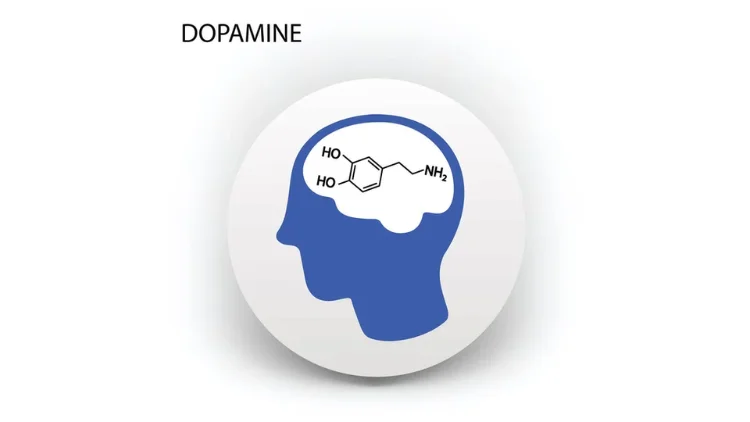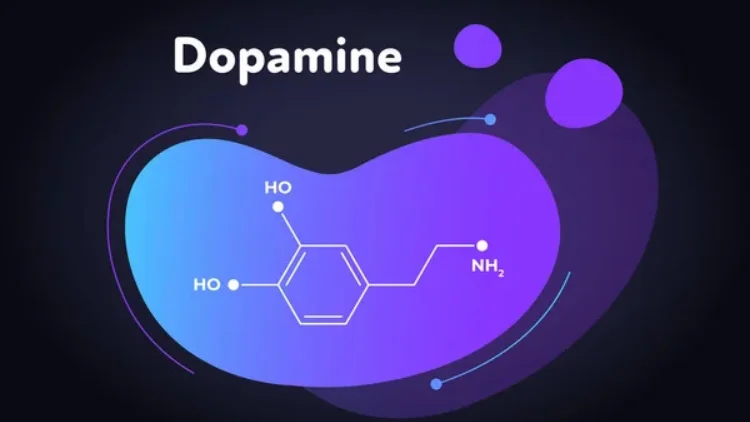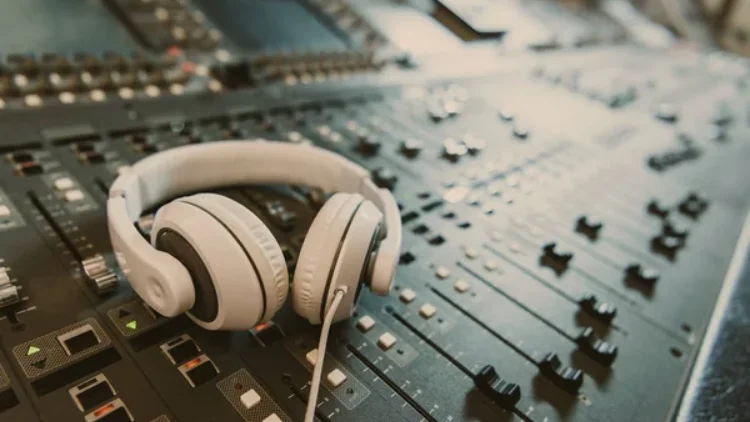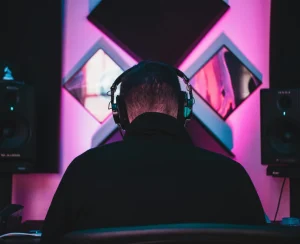Music has a profound impact on our emotions, moods, and even our brain chemistry. One of the key ways music influences us is through its effect on dopamine, a neurotransmitter often referred to as the “feel-good” chemical. In this article, we’ll explore how music affects dopamine levels in the brain, why this matters, and what it means for your overall well-being.
What Is Dopamine?
Dopamine is a neurotransmitter that plays a critical role in the brain’s reward system. It is often associated with feelings of pleasure, motivation, and satisfaction. When you engage in activities that are enjoyable or rewarding—such as eating your favorite food, exercising, or achieving a goal—your brain releases dopamine. This chemical not only makes you feel good but also reinforces behaviors, encouraging you to repeat them.
Dopamine is also involved in other important functions, such as regulating mood, focus, and movement. Imbalances in dopamine levels have been linked to conditions like Parkinson’s disease, depression, and addiction.

Does Listening to Music Release Dopamine?
Yes, listening to music can trigger the release of dopamine in the brain. Research has shown that when people listen to music they enjoy, their brain’s reward system is activated, leading to the release of dopamine. This is why music can evoke strong emotional responses, such as chills, goosebumps, or a sense of euphoria.

A study published in the journal Nature Neuroscience found that participants who listened to their favorite music experienced a surge in dopamine levels, particularly during moments of peak emotional intensity. This suggests that music doesn’t just make us feel good—it actively engages the brain’s reward system in a way that is similar to other pleasurable activities.
How Does Music Affect the Brain?
1. Neurochemical Changes
One of the most notable effects is the release of dopamine, a neurotransmitter associated with the brain’s reward system. This release produces feelings of pleasure, motivation, and satisfaction, similar to the sensations experienced during activities like eating or socializing. On the other hand, slow-tempo music can lower cortisol levels, the hormone responsible for stress, effectively promoting relaxation and reducing anxiety. In group settings, particularly when listening to harmonious music, the brain’s production of oxytocin is enhanced. This hormone, often referred to as the “bonding” or “love” hormone, fosters feelings of trust, connection, and social cohesion.
2. Brainwave Synchronization
Music has the power to synchronize brainwaves, directly influencing mental states and consciousness. Alpha waves, typically associated with relaxation and creativity, are promoted by calm, soothing music. In contrast, beta waves, linked to alertness and concentration, are enhanced by more upbeat or fast-tempo music. This synchronization of brainwave patterns can help regulate cognitive functions, ranging from focus to creativity, based on the type and tempo of the music being played.
3. Activation of Specific Brain Regions
Music activates multiple regions of the brain, each contributing to the processing and interpretation of sound, emotion, and memory. The auditory cortex is primarily responsible for processing sound and rhythm, while the prefrontal cortex plays a critical role in decision-making, emotional regulation, and higher-order thinking.
Music also activates the amygdala, a region responsible for processing emotions, which explains the emotional responses that music can elicit, whether joy, sadness, or nostalgia. Additionally, the hippocampus links music with memory, enabling music to evoke vivid memories or a sense of nostalgia, providing a powerful emotional connection to our past experiences.
4. Impact on Neural Plasticity
Engaging with music, especially through playing an instrument or composing, boosts neural plasticity—the brain’s ability to form and strengthen connections between neurons. This enhances cognitive functions like memory, attention, and problem-solving.
Musicians often have more gray matter in areas related to motor control, auditory processing, and memory, leading to improved brain efficiency and cognitive performance. This is true for both children and older adults.
Music creation, particularly with tools like Tempolor AI Music Generator, allows you to unleash your creativity and compose music that stimulates your brain. By experimenting and creating your own melodies, you can harness the power of music to boost dopamine and fuel your imagination.

5. Emotional and Psychological Effects
Whether it’s evoking joy, sadness, or excitement, music can trigger emotional responses by influencing the brain’s emotional circuits. This interaction helps regulate mood, providing a means to manage feelings of anxiety, depression, or stress. Music therapy, in particular, is often used as a tool for mental health treatment, helping individuals express emotions and alleviate psychological symptoms through structured musical experiences.
What Does Music Do to the Brain?
Music is a multi-sensory experience that engages various regions of the brain. Here’s how it works:
1. Activates the Reward System
Listening to music you enjoy triggers the release of dopamine, the “feel-good” neurotransmitter. This is why music can make you feel happy, excited, or even euphoric.
2. Stimulates Memory and Learning
Music activates the hippocampus, the part of the brain responsible for memory and learning. This is why certain songs can evoke vivid memories or help you recall information more easily.
3. Enhances Emotional Processing
Music engages the amygdala, the brain’s emotional center, allowing it to evoke strong emotions like joy, sadness, or nostalgia.
4. Improves Focus and Productivity
Instrumental music, especially genres like classical or lo-fi, can enhance concentration and cognitive performance by reducing distractions and promoting a state of flow.
5. Promotes Relaxation and Stress Relief
Slow-tempo music can lower cortisol levels (the stress hormone) and activate the parasympathetic nervous system, helping you relax and unwind. But what type of music causes anxiety?

Why Do Humans Like Music?
Humans have been creating and enjoying music for thousands of years. But why is music so universally appealing? Here are some reasons:
1. Evolutionary Connection
Some scientists believe that music played a role in human evolution, helping early humans bond, communicate, and coordinate activities.
2. Emotional Expression
Music allows us to express and process emotions that are difficult to put into words. It can serve as an emotional outlet or a way to connect with others.
3. Social Bonding
Music often brings people together, whether through singing, dancing, or attending concerts. This shared experience fosters a sense of community and belonging.
4. Brain Stimulation
Music engages multiple areas of the brain, creating a rich and rewarding sensory experience. This stimulation is inherently pleasurable for humans.
FAQ
Why Is Music So Powerful?
Music’s power lies in its ability to influence both the mind and body. Here’s why it’s so impactful:
1. Universal Appeal
Music transcends language and cultural barriers, making it a powerful tool for communication and connection.
2. Emotional Resonance
Music can evoke a wide range of emotions, from joy and excitement to sadness and nostalgia. This emotional resonance makes it deeply personal and meaningful.
3. Physical Effects
Music can influence heart rate, breathing, and even hormone levels. For example, upbeat music can increase energy levels, while slow music can promote relaxation.
4. Therapeutic Benefits
Music therapy is used to treat conditions like depression, anxiety, and chronic pain. Its ability to regulate mood and reduce stress makes it a powerful healing tool.
What Is the Best Music Genre for Motivation?
If you’re looking to boost your motivation, the right music can make all the difference. Here are some of the best genres for energy and focus:
- Electronic Dance Music (EDM): With its fast tempo and energetic beats, EDM is perfect for workouts or high-energy tasks.
- Rock: Classic rock or alternative rock can provide a powerful boost of energy and confidence.
- Hip-Hop: The rhythmic beats and motivational lyrics in hip-hop make it a great choice for staying focused and driven.
- Classical: For tasks that require concentration, instrumental classical music can enhance focus and productivity.
- Pop: Upbeat pop songs with catchy melodies are ideal for lifting your mood and keeping you motivated.
Related read: What Genre of Music is the Most Popular?
Why Does Music Make Me Feel Energetic?
Music’s ability to energize you is rooted in its impact on the brain and body:
1. Tempo and Rhythm
Fast-paced music with a strong beat can increase heart rate and adrenaline levels, making you feel more alert and energized.
2. Dopamine Release
Upbeat music triggers the release of dopamine, which boosts mood and energy.
3. Psychological Effects
Music can distract you from fatigue and create a sense of excitement, making physical or mental tasks feel easier.
What Music Should I Listen To?
The best music for you depends on your goals and preferences. Here are some suggestions:
1. For Relaxation: Try ambient, classical, or natural sounds to calm your mind and reduce stress.
2. For Focus: Instrumental music, such as lo-fi beats or classical piano, can help you concentrate. Read about the old instrumental brand.
3. For Motivation: Choose upbeat genres like EDM, rock, or hip-hop to boost your energy and drive.
4. For Emotional Healing: Listen to songs that resonate with your emotions, whether they’re uplifting ballads or soothing melodies.






